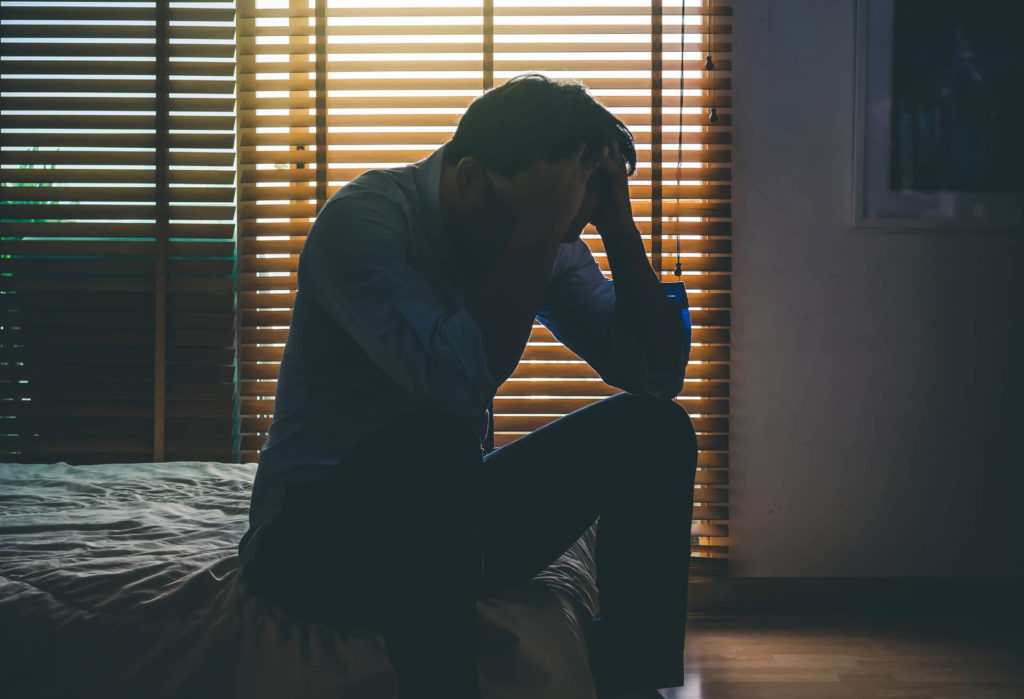Signs of Opiate Addiction

Drug addiction is a slippery slope. What can begin as experimentation or a prescription from a doctor can quickly spiral out of control as you become more and more dependent on the drug to feel the same effects. Substances such as hydrocodone, fentanyl, and morphine have their place in the treatment of certain medical conditions, but their effects are highly sought after by some who continue to crave the feeling that they get from their use. Their calming effects can be habit-forming, setting users up for patterns of abuse.
Taking medication more frequently than needed, taking increasing amounts of the drug to achieve the desired effect, and taking opiates in secret are all classic signs that use has transitioned into abuse. Opiate abuse and addiction affect over 2 million Americans each year, with numbers increasing each year. Early detection of abuse is necessary for recovery to be possible. Recognizing signs and symptoms that are characteristic of opiate addiction will be instrumental in finding a way out of the cycle of addiction.
Signs And Symptoms Of Opiate Addiction
The most common signs of opiate addiction are:
- Needle marks on arms and legs because of intravenous use
- Constricted pupils
- Feeling sleepy or groggy much of the time
- Flushed and itchy skin
- Social withdrawal
- Sudden and dramatic mood swings
- Increased impulsivity and rash decisions
- A tendency to engage in risky activities and behaviors
- Seeing several doctors at the same time in order to obtain additional prescriptions
The earlier a substance abuse situation is identified, the easier it will be to receive treatment. Often, a patient merely needs a reminder from a doctor that the benefit of the prescription has run its course, and that is enough for the patient to realize that it has become a potentially harmful situation. With other people who have fallen victim to the clutches of addiction, it will require a more lengthy process of detoxification and rehabilitation in order to break free from the destructive cycle.
Signs Of Opiate Use And Abuse
There are immediate side effects of opiate use and abuse; recognizing these will be essential in order to reduce the likelihood of abuse and addiction. Someone who is taking opiates or abusing opiates will:
- Have flushed and itchy skin
- Exhibit signs of slower and possibly labored breathing
- Demonstrate impaired judgment
- Have bouts of nausea and vomiting
- Experience constipation and bloating
- Experience blurred vision
- Possibly lose weight
- Hallucinate
- Have feelings of euphoria
- Feel lightheaded and dizzy
Over time, with long term use and abuse, the person can sustain long term vein damage, emotional instability, emotional volatility, depression, and insomnia. Nerve damage may be an issue as well, as opiates have a numbing effect on the central nervous system.
Dangers Of Opiates
While most people begin their exposure to opiates through a prescription medication given by their doctor, it can quickly become something they cannot control as their desire for the drug’s perceived effects is sought after repeatedly. Over time, a person addicted to opiates may borrow or steal pills from family and friends to fuel their need for the drug. When taking pills orally no longer achieves the same high that was once felt before, a person may resort to crushing pills, snorting or even injecting intravenously to feel better faster. The rush of these substances in the body might be achieved faster, but this manner of ingesting produces severe consequences. Life-threatening conditions such as respiratory failure and cardiac arrest are common in people who accidentally overdose.
Other risks of opiate abuse include the possibility of contracting HIV through intravenous needle sharing, overdose, and neonatal abstinence syndrome. Thousands of infants are born each year to opiate-addicted mothers, and their pathway into the world becomes clouded and tragic as they fight the ups and downs of drug addiction through no fault of their own. The use and abuse of opiates are risky and dangerous, and even when prescribed, it is necessary to proceed with caution.
I Recognize A Need For Help. What Next?
If you or someone you love is struggling with addiction, there is help and hope. Talk to friends and family and get support for yourself as you reach out to find the treatment that works for you. You deserve a life that is free from the pain and anguish that addiction can cause. Being addicted to opiates is a life-changing event, one with dire consequences if not properly treated. Finding licensed medical detoxification program is an essential starting point; surrounding yourself with the support of friends and loved ones will get you through this difficult time. While the road to recovery is not an easy one, it is possible to find a fulfilling life without the use of drugs and alcohol. Reach out, believe that you deserve it, and start to create your best life free from addiction. We’re rooting for you!




